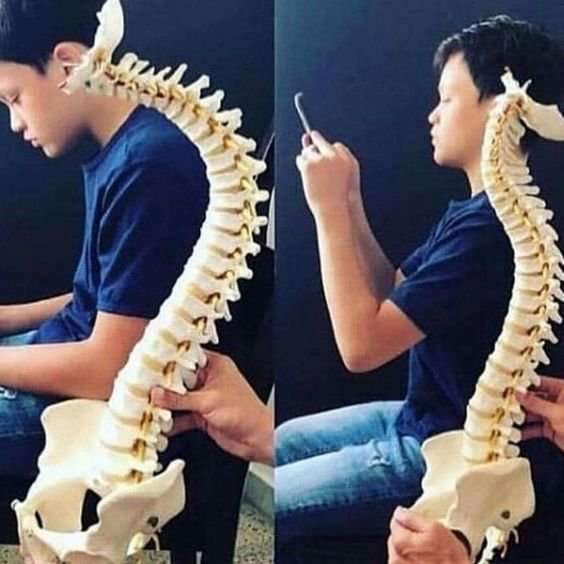FREQUENTLY ASKED QUESTIONS (FAQs)
- What will be my first visit like?
- Do I need a script to start physical therapy?
- Do I need a script for physical therapy if Medicare covers me?
- What should I wear for my appointments?
- How many sessions will I need?
- How long will each physical therapy session last?
- Will physical therapy be painful?
- How can I get the most out of physical therapy?
- What if I don’t see improvement?
Your first visit will be scheduled for 60 minutes one on one with the therapist. Together we will discuss your current health concerns, review your past medical history and then perform a detailed physical assessment. Based on our assessment we will provide you with our recommendations and together we will come up with the best planes for you.
You do not need a script to begin care as Illinois state law allows for direct access to physical therapy service. This means you can see your therapist without a script , or referral from your physician. During your intake, we may ask you to provide your primary care physician, or other physician information, so we can share your plan of care with your care team.
You do not need a script to begin physical therapy. However, we will need to inform your physician you will be receiving services. All you need to do is provide your physician’s name and phone number and we will take care of the rest.
Wear comfortable clothes that you can move in and exercise.
The number of sessions you need will depend on your condition and how quickly you progress. Your physical therapist will give you an idea of how many sessions might be necessary during your first visit.
Sessions typically last between 30 to 60 minutes, depending on your specific needs and treatment plan.
Physical therapy should not be painful, but some exercises and treatments may cause mild discomfort as you work through your injury or condition. Your therapist will work with you to ensure the exercises are manageable and help you improve.
To get the best results, follow your physical therapist’s advice, do your exercises regularly at home, and communicate openly about your progress and any concerns.
If you don’t see improvement, talk to your physical therapist. They may adjust your treatment plan or try different techniques to help you achieve better results.
- What conditions can the McKenzie Method treat?
- What are the benefits of the McKenzie Method?
- How long does it take to see results with the McKenzie Method?
- Are there any risks or side effects associated with the McKenzie Method?
- Is the McKenzie Method suitable for everyone?
- How do I find a certified McKenzie Method practitioner?
The McKenzie Method can effectively treat:
- Lower back pain
- Neck pain
- Sciatica
- Disc herniations and bulges
- Spinal stenosis
- Joint pain and dysfunction
- Referred pain in the extremities
Benefits of the McKenzie Method include:
- Reduction or elimination of pain
- Improved mobility and function
- Enhanced understanding of your condition
- Empowerment through self-treatment techniques
- Prevention of future episodes of pain
Results vary depending on the individual and the severity of the condition. Some patients experience significant improvement within a few sessions, while others may take longer to achieve optimal results.
The McKenzie Method is generally safe and well-tolerated. However, it is essential to follow the guidance of a trained therapist to ensure exercises are performed correctly and to avoid exacerbating symptoms.
While the McKenzie Method is effective for many people, it is not suitable for everyone. A trained practitioner will assess your condition and determine if the McKenzie Method is appropriate for you. In some cases, alternative treatments may be recommended.
To find a certified McKenzie Method practitioner, you can visit the official McKenzie Institute website and use their directory to locate trained therapists in your area.
- What is pelvic health rehabilitation?
- What does pelvic health rehabilitation treatment involve?
- What conditions can pelvic health rehabilitation treat?
- How long does it take to see results from pelvic health rehabilitation?
- Can pelvic health rehabilitation help during pregnancy?
- Is pelvic health rehabilitation painful?
Pelvic health rehabilitation is a specialized field of physiotherapy that focuses on treating conditions affecting the pelvic floor muscles, bladder, and bowel
Treatment may include:
- Kegel exercises (strengthening pelvic floor muscles)
- Biofeedback (using sensors to monitor muscle activity)
- Electrical stimulation (gentle stimulation to improve muscle function)
- Relaxation techniques
- Education on lifestyle modifications
Pelvic health rehabilitation can address a variety of conditions, including:
- Urinary incontinence
- Fecal incontinence
- Pelvic organ prolapse
- Chronic pelvic pain
- Painful intercourse (dyspareunia)
- Pregnancy and postpartum-related issues
- Constipation and bowel dysfunction
The time to see results can vary based on the severity of the condition and individual factors. Some people may notice improvements within a few weeks, while others may require several months of consistent therapy.
Yes, pelvic health rehabilitation can be very beneficial during pregnancy. It can help manage symptoms such as pelvic pain, urinary incontinence, and prepare the pelvic floor muscles for childbirth.
Pelvic health rehabilitation is generally not painful. Some discomfort may be experienced during certain assessments or treatments, but therapists strive to ensure patient comfort and will adjust techniques as needed.
- What conditions can vestibular rehabilitation treat?
- Who can benefit from vestibular rehabilitation?
- What does vestibular rehabilitation treatment involve?
- When should I consider vestibular rehabilitation?
- Are there any risks associated with vestibular rehabilitation?
- How long does it take to see results from vestibular rehabilitation?
Vestibular rehabilitation can effectively treat:
- Benign Paroxysmal Positional Vertigo (BPPV)
- Labyrinthitis and vestibular neuritis
- Meniere’s disease
- Vestibular migraine
- Post-concussion syndrome
- Chronic dizziness
- Balance disorders
Individuals experiencing dizziness, vertigo, balance issues, or coordination problems due to vestibular disorders can benefit from vestibular rehabilitation. It is suitable for patients of all ages, including those recovering from head injuries or strokes.
Vestibular Rehabilitation exercises may include:
- Canalith repositioning maneuvers (specific head movements to treat BPPV)
- Gaze stabilization exercises
- Habituation exercises (gradually exposing you to movements that trigger dizziness)
- Balance training exercises
- Education on fall prevention and safety strategies
You should consider vestibular rehabilitation if you experience:
- Persistent dizziness or vertigo
- Balance problems or frequent falls
- Difficulty focusing or maintaining clear vision during head movements
- Symptoms that interfere with daily activities and quality of life
Vestibular rehabilitation is generally safe and well-tolerated. Some patients may experience temporary increases in dizziness or unsteadiness as they perform exercises, but these symptoms typically decrease over time with continued therapy.
The duration of treatment depends on the severity of your condition and your progress. You might require multiple sessions over several weeks or months.
- Do you accept insurance?
- Do you accept insurances you are not in network with?
- How will I know if my insurance covers physical therapy?
- Do you have a cash-pay option?
- Can I use my FSA or HSA if I opt to self-pay for my services?
Yes! Our clinic is in-network with Blue Cross and Blue Shield and Medicare. We also work with insurances we are out of network with as patients often have benefits available even out of network.
Yes! Even if we are not contracted with your insurance company, we can still bill them as many plans do offer out of network benefits. In some cases, your insurance company may cover services as in “in-network” if there is a network gap and you meet certain other criteria. Contact our office to discuss how we can work with your specific plan.
Our clinic offers complementary benefit verifications. After we contact your insurance, we will provide you with a quote of benefits. The quote will give you information about any deductible, coinsurance, or copays that may apply to physical therapy service. Based on the quote, we can also provide an estimate of your out-of-pocket cost per visit. We also encourage you to check your own benefits, so you have a better understanding of your coverage.
Yes! You can use your HSA or FSA for self-pay services. Our office will provide you with the necessary receipts required by these types of accounts.







